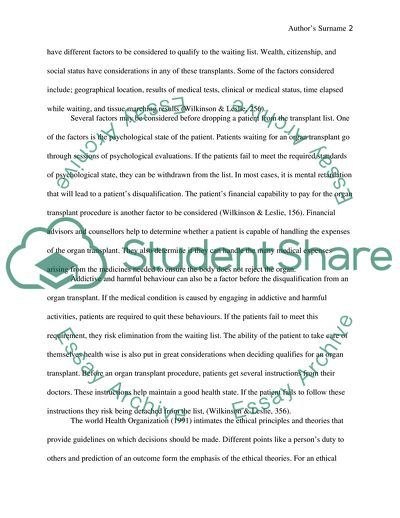Cite this document
(The Core of the Hippocratic Tradition Assignment, n.d.)
The Core of the Hippocratic Tradition Assignment. https://studentshare.org/philosophy/1805446-ethical-issues-in-dropping-patients-from-transplant-list
The Core of the Hippocratic Tradition Assignment. https://studentshare.org/philosophy/1805446-ethical-issues-in-dropping-patients-from-transplant-list
(The Core of the Hippocratic Tradition Assignment)
The Core of the Hippocratic Tradition Assignment. https://studentshare.org/philosophy/1805446-ethical-issues-in-dropping-patients-from-transplant-list.
The Core of the Hippocratic Tradition Assignment. https://studentshare.org/philosophy/1805446-ethical-issues-in-dropping-patients-from-transplant-list.
“The Core of the Hippocratic Tradition Assignment”. https://studentshare.org/philosophy/1805446-ethical-issues-in-dropping-patients-from-transplant-list.


